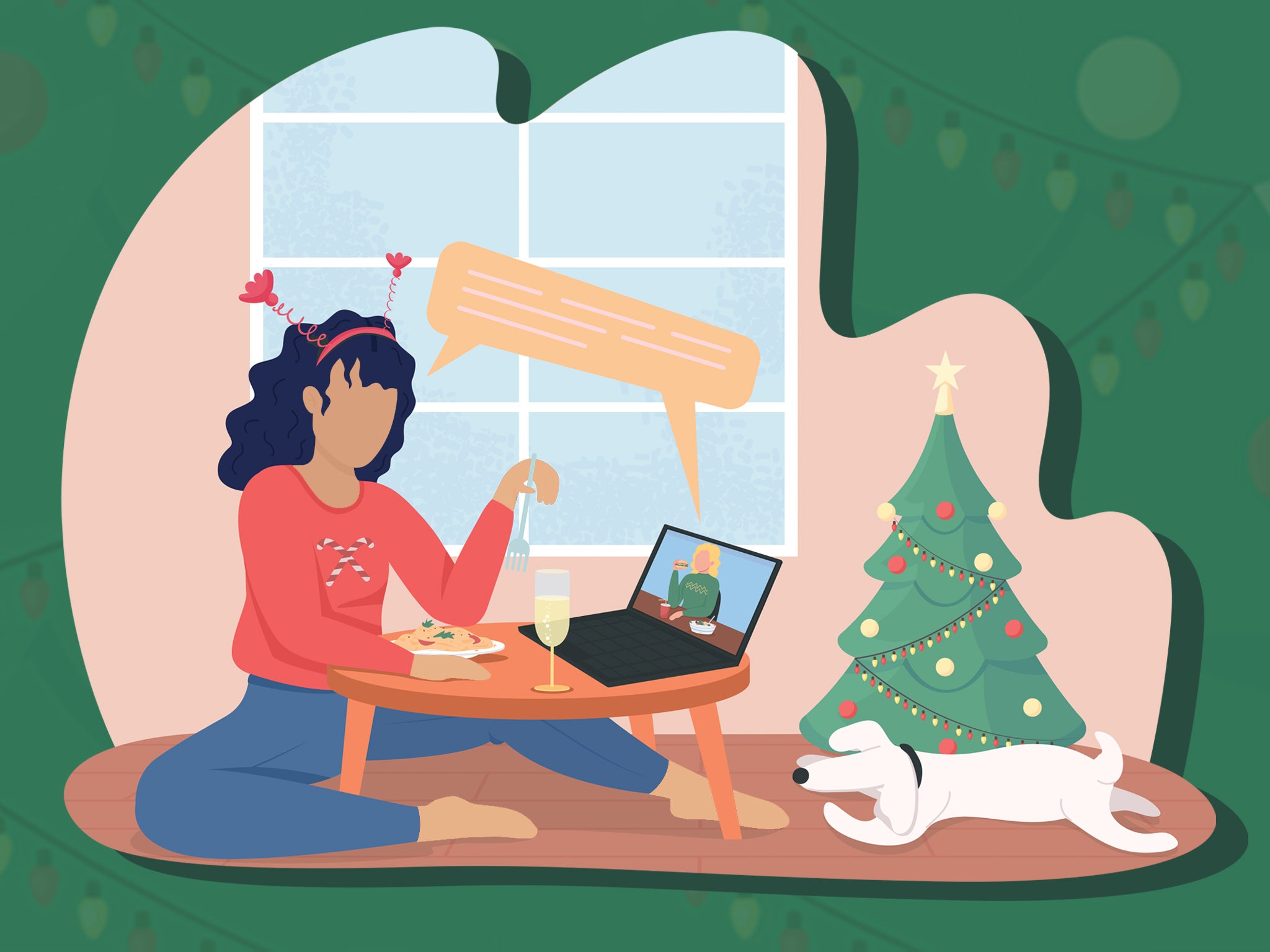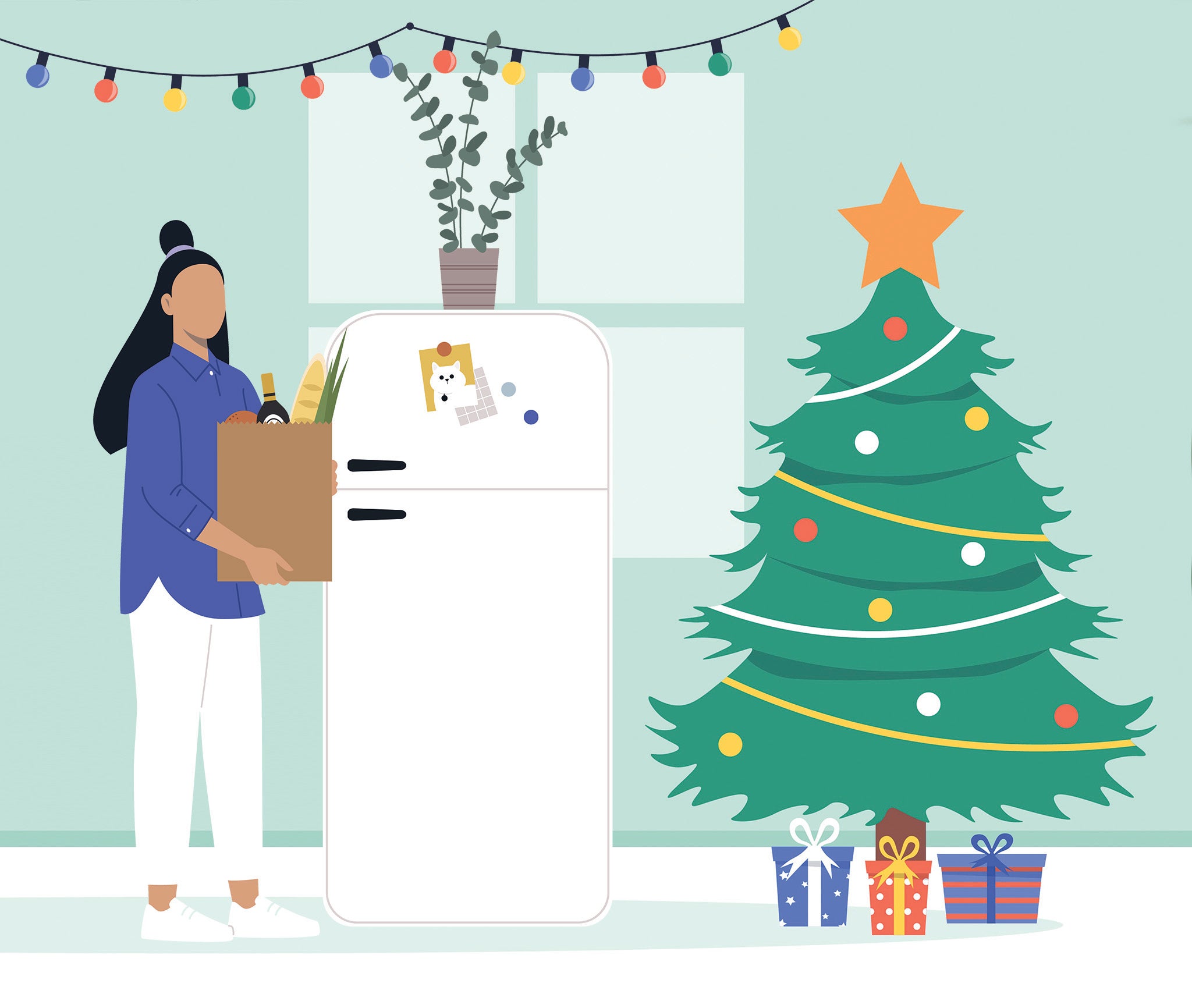When you can’t go home for Christmas, food can keep you connected
On Christmas Day, it will be 446 days since the New Zealand border effectively closed. Molly Codyre looks at how cooking can help you feel close to home, even when your family is half a world away


Your support helps us to tell the story
From reproductive rights to climate change to Big Tech, The Independent is on the ground when the story is developing. Whether it's investigating the financials of Elon Musk's pro-Trump PAC or producing our latest documentary, 'The A Word', which shines a light on the American women fighting for reproductive rights, we know how important it is to parse out the facts from the messaging.
At such a critical moment in US history, we need reporters on the ground. Your donation allows us to keep sending journalists to speak to both sides of the story.
The Independent is trusted by Americans across the entire political spectrum. And unlike many other quality news outlets, we choose not to lock Americans out of our reporting and analysis with paywalls. We believe quality journalism should be available to everyone, paid for by those who can afford it.
Your support makes all the difference.On Christmas Day this year, it will have been 625 days since New Zealand introduced the Managed Isolation and Quarantine system and 446 days since it became a requirement to book a space in this system in order to enter the country. That makes it 446 days since entering my home country has become almost impossible. This year, 25 December will mark the second Christmas I’m unable to be at home.
Last time I was home for Christmas, my brother was finishing his first year of university. Next time I see him will hopefully be next Christmas, and he will have finished all four years of his degree. At the end of 2019 my aunty was navigating life with a two-year-old toddler. Next time we see each other, her second child will be almost the same age. That year feels like a distant memory. We had the whole family together, some of us from as far as England, others from across the pond in Australia. We spent long, lazy days using pliers to debeard mussels en masse in buckets, the salt water stinging the cuts on our hands from grabbing them off the rocks, and cooking them in coconut, chilli and lime. Christmas dinner was eaten outside around a long, communal table, the waves crashing just behind us, followed by a long walk down the beach and a quick surf on the sandbar.
I have spent much of my life thinking my family bucked tradition when it came to Christmas. We were often in different locations, sometimes at our beach house, other times at home in Auckland, some years we were out of the country and on a couple of occasions we spent it at the home of some member of the extended family. What we had for our meal would vary each year, too. When some families seem to have a fixed menu of what’s on offer each year, our Christmas meal was transient; sometimes traditional, other times entirely not. But as I have grown older and moved away from home, I have realised these meals were far more fixed than I remember. It doesn’t matter where we were, the day would almost always start with scrambled eggs, salmon gravadlax and a croissant. If we were in charge of the cooking, the starter would always be Dad’s unbelievably 1970s dish of half an avocado draped in salmon and drizzled with a strawberry and balsamic vinaigrette, like some kind of terrible piece of modern art. Mum would always make the ham (rub it with marmalade first and baste it every 15 minutes) and it would usually be eaten with Nan’s peaches, which would have been slowly roasted in a seeded mustard and honey sauce.
Some of them are newer traditions. When my sister was in the depths of her chemotherapy last Christmas, my parents managed to fly over to support her through the horrible process. Living almost on top of each other in a tiny flat in Haggerston in the heart of lockdown, Christmas was about as far from usual as it could ever get. Except, of course, for the fact that we still started the day with salmon gravadlax and scrambled eggs and feasted on Mum’s Christmas ham. Dealing with seasonal British ingredients, a few new classics were developed; like brussel sprouts, roasted in honey and balsamic with crispy bacon – a side I imagine will be on the regular Christmas rotation going forwards.
Food is, without a doubt, a major connection to home. Taste can spark such specific memories and have such deep emotional links. With Christmas being so intrinsically synonymous with food, it’s an opportunity to feel a little less far away during the festive season. “I come from a very big family, so Christmas is full of people and food,” UK-based Kiwi Libby McPherson tells me. “My dad makes the most incredible Christmas ham, so when I have been away from family for Christmas, I always try to make this. My grandma makes Christmas puddings every year, and on the day she’ll make a flavourless, lumpy custard. Without fail, my dad will always squirrel it away and doctor it up with rum, miraculously making it very delicious. My grandma is never the wiser.”
For some, it’s the Kiwi (not Australian) classic, a pavlova. “I have a friend whose family adopts me over Christmas so I go up there every year for a week,” Megan tells me. “They make me pavlova for dessert. Between you and me, I actually hate pavlova, but it makes it feel like Christmas back home, being forced to eat the dessert I hate.” Cassandra Hutson’s family takes a classic twist on the dish with a chocolate pavlova. “My mum’s love language is food, and she never tells us she loves us more than at Christmas time,” she tells me. “After lunch, when all the photos have been taken, I’ll change into something with an elasticated waistband in preparation for dessert. Mum makes chocolate pavlova every year, which is world famous in my family. I attempted to recreate it unsuccessfully last year.”

For London-based Sophie Turner, it’s a dish not typically related to Christmas that offers the strongest ties to home. “It’s not something my family usually cooked at Christmas, but ever since moving to London I have made Dad’s meatloaf for my husband and friends,” she tells me. “It is the perfect winter comfort dish and is such a joy to make and eat. My dad always cooked it best – it was the star of the table at anyone’s birthday or special event.”
This Christmas I will be spending it without any of my family for the first time in my life. The day will begin with bacon sandwiches and finish cuddling up to the fire rather than throwing my turkey-filled body into the ocean. I’m trying to find a small slice of familiarity by making Mum’s ham, and last year’s brussel sprouts. Salmon will still feature, courtesy of my partner’s Scottish sister-in-law, but it will be smoked and come on a blini rather than an avocado. There will be mountains of my mother-in-law’s infamous potatoes that no one can ever get quite as crispy, despite many attempts at recreation. It might not be that different from previous Christmases away from home, but it will be starkly contrasted in perhaps the biggest way; I will only be able to see my family through a blurry screen and a tinny iPhone speaker. That first bite of Mum’s ham might transport me back to Yuletides past, but it won’t be any match for the bleary eyed, early morning hugs, or the Pinot Noir-fuelled laughs.
Being separated from family at Christmas is not a feeling solely reserved for those of us currently locked out of countries. Millions of families across the world spend Christmas separated every year, but it feels particularly compounded in a year that has been peppered with stories of separation and devastation of families who have been forcibly kept apart by Covid-related border policies. “My mum loves Christmas, and has always made it so magic,” McPherson tells me. “So I just can’t wait to be with my family and spend time with them.” For Turner, Christmas has always been about food: “There’s this awesome moment that happens after you’ve stuffed your face with your fourth round of Christmas lunch and you lay back on the sofa or deck chair in a hazy food coma, you look around and everyone you love is in the same room, I think I miss this moment the most.” Hutson seconds this: “I would sacrifice every Christmas dinner for the rest of my life to be able to sit around a table and argue with my family this holiday season.”
Join our commenting forum
Join thought-provoking conversations, follow other Independent readers and see their replies
Comments